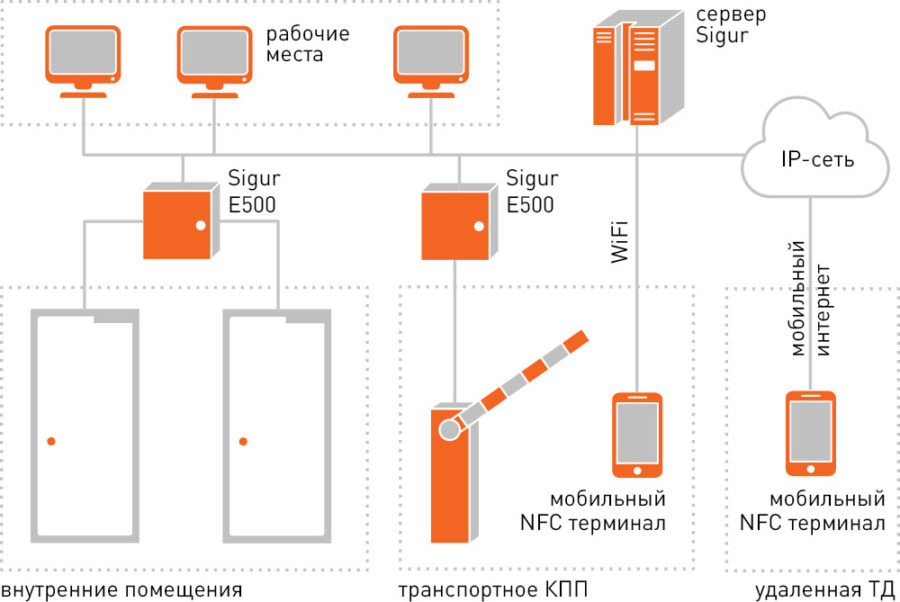Technologies are constantly developing, and what until recently seemed like science fiction has become a part of our life.

In recent years, human behavior has changed a lot. He developed new habits that were not there before, he began to do more, he became more knowledgeable, and when making an important decision, he was able to ask his loved ones for advice at any time. All these changes have happened to him due to the rapid development of telecommunication technologies. It would be too naive to say that in the format of a small article it is possible to comprehensively cover the entire path of human evolution, so we will limit ourselves to what has happened over the past 10 years. Let me remind our youngest readers that before 2009 there were communicators, and phones were equipped with simple HTML browsers and the ability to install third-party software, but our goal is to embrace changes in society and highlight those mobile technologies that have changed a person's habits, quietly entered it a life. There are not so many of them, in fact, but if I forgot something, then please write about it in the comments.
- Content:
- Payment for goods and services using the phone
- Wireless headphones and the rejection of the minijack
- Paid subscriptions for music, movies and content per se
- Smartphone instead of a camera
- Release of an employee from the workplace and control by management
- Technologies that should have been, but …
Content:
- Payment for goods and services using the phone
- Wireless headphones and the rejection of the minijack
- Paid subscriptions for music, movies and content per se
- Smartphone instead of a camera
- Release of an employee from the workplace and control by management
- Technologies that should have been, but …
Payment for goods and services using the phone
More recently, in 2009, most of the enterprises paid their employees cash wages. Paper notes, brand new and crisp, were material, but they also had a number of drawbacks – they could be lost, they could be stolen, they could be taken away by a wife or husband. With the massive introduction of bank cards, the situation changed somewhat, money began to be stored in a safer place, and only a very gullible person or someone who does not understand how the whole system works could be robbed. But then the NFC module appeared in the smartphone, and people got used to forgetting their bank card at home.

The demand for this payment technology is growing every year, which can be clearly seen from the comments on the site. Three or four years ago, people could not call a smartphone that did not have an NFC module as a flagship, and nowadays, it seems, the requirement for the presence of NFC has fallen into the budget price segment 'up to 10,000 rubles'. The technology has become so ubiquitous that it has gone far beyond the 'pay for goods and services' scenario to be used wherever possible. How do you like the idea of using a smartphone with an NFC module instead of an electronic badge at the enterprise?

An ACS (access control and accounting) system, organized on the basis of an ordinary smartphone, is a sure sign that the technology has been entrenched for a long time. And confirmation of the trend – people began to worry more if they forget their smartphone at home, and not a bank card or pass.
Wireless headphones and the rejection of the minijack
In the good old days, people shied away from you and looked after you for a long time, if you suddenly started talking to yourself on the street. And in their heads, perhaps, the thought was spinning – to call a special vehicle from a local psychiatric hospital or not. Then everyone got used to ordinary wired headphones, this event ceased to be 'amazing'. However, a little later, wireless headphones appeared, and the surrounding people again cheered up a little, because the vision filter no longer revealed a thin strip of a wired headset against the background of clothes and neck.

And how did this benefit the owners of wireless headsets compared to wired ones? Increased mobility seems to be a controversial argument, but the impossibility of tearing a wireless headset already seems to be true. All of us have at least once found ourselves in a situation where a thin wire clung to a button and could break when jerking. Or the opposite situation – when, constantly adjusting the length of the wire (so as not to protrude too much behind the collar), we thereby imperceptibly took the phone out of the inner pocket and almost dropped it.

Why can we say that wireless headphones have firmly entered our lives and become widespread? The decisive argument was their price, because the most simple ones can be purchased for 330 rubles, whereas a few years ago they were a 'luxury item'. If you internally accept this fact (and you want to resist), then it becomes clear why smartphone manufacturers refuse the minijack. This 'life hack' allows you to reduce the cost of designing and manufacturing a smartphone while keeping the price unchanged.

And what habits have entered our lives due to the lack of a wire from the headset? Perhaps, having come home, we got used to putting two objects on charge instead of one? Hide a headset behind the lapel of a knitted hat?
Paid subscriptions for music, movies and content per se
The modern young person is already used to this kind of relationship with a content provider. But the older generation is becoming more and more difficult to accept the existing reality. It is very difficult to get used to the fact that money has been paid, but the product does not belong to you. Please understand correctly, during the youth of my generation, we did not believe that music or cinema could be worth money on their own. Renting in our understanding was something like going to the cinema or to a concert, where you rented a chair, a large screen and a mechanic with a movie projector for little money. And thus they paid not for the work itself, but for the possibility of its comfortable consumption. The information itself in a child's head could not be worth anything, because it belonged to everyone. One can argue on this topic for a long time, remember piracy and DVD discs, but there is one more factor.

When we pay for an antivirus subscription, we pay for a product that changes over time. Programmers constantly update the virus database and find a cure for them. Their work is similar to the work of doctors, where our infected device acts as a patient. But what about the fact that after listening to music by subscription, you cannot download it to your smartphone in order to listen to it in a year? However, such subscriptions have become an integral part of modern life. He doesn't want to mess with transferring files to memory or the cloud, and he is quite happy with the automatic debiting of funds for the subscription once a month. What habits have spawned paid subscriptions in society? Young people are gambling on the Internet in search of promotions, coupons and discounts on subscriptions, while older people carefully study the account for debiting funds. And for many, life is already unthinkable without this phenomenon of our time.
Smartphone instead of a camera
Ten years ago, there was not a single smartphone that could even come close to the quality of pictures taken with a DSLR. The watershed, in my humble opinion, passed somewhere in the area where iPhone 5S appeared. If you look at the pictures he took without a magnifying glass, but as if they were printed and are in a photo album, then the difference with professional equipment may not be noticed. Do not agree? Express your opinion.

Shot with iPhone 5s
There is another argument in support of the 'smartphone instead of a camera' claim. And to understand it, it is enough to look at the inexpensive soap dish cameras on sale. Most of them were produced 3-4 years ago, and there are practically no new receipts. People stopped taking their cameras with them on vacation, on a business trip to another city, on hikes, on barbecue and picnics. The stern hand of technological progress has carved out an entire segment of the electronic market. What habits have people gotten from the advent of good cameras, even in inexpensive smartphones? Using the front camera of your smartphone instead of a mirror (girls)? Using a smartphone camera instead of a probe to get a picture of the insides of a car or a system unit (boy)?
Release of an employee from the workplace and control by management
In 2017, HeadHunter Research Director (job aggregator) Gleb Lebedev made the following prediction:
By 2020, the number of vacancies for remote employees will reach 6-8%. In 2010, the share of such vacancies was 0.56%, and in 2015 it increased to 4.05%, according to the company. When the share of such vacancies reaches 12-15%, the growth of their number will slow down. At the same time, one of the factors of supply growth in the segment of remote work is information technology.

The number of freelancers is growing steadily and inexorably. And there are reasons for this – work from home and, in general, anywhere, the absence of a leader breathing down the neck and payment for the result, not for the process. Tempting, isn't it? The majority of freelancers are designers, translators, copywriters, developers and programmers. All these specialists need three things to work – to be constantly online (interaction with the customer and colleagues), a laptop / PC and sandwiches with coffee. How do they relate to advances in communication technology? They create content and tools for viewing it, in other words, these are the same bees who make honey to all of us from morning to evening. According to some analysts' forecasts, the total number of freelancers (remote work) by 2020 may reach 20% of the entire labor market, this is a very large figure that has turned the life of the entire society over the past 10 years.

What about habits? All freelancers have different habits, some lie on the couch all day and then complete their daily quota in an hour, others, on the contrary, do everything at once. However, there is one thing that all freelancers have in common – don't feed them with bread, just check your email.
Technologies that should have been, but …
For absolutely biased reasons, electronic SIM cards (eSIM) have not yet appeared in our smartphones. Why do you think?
Cable TV is still alive today. Why and what is the meaning of its existence these days remains a mystery. Is it possible that the system of interaction with the client is built in such a way that it is not very easy to refuse their services? It is built so intricately that it is easier for a person (especially an elderly person) to pay the conditional 300 rubles a month than to go somewhere and write something in order to simply refuse the service by phone.
Tell us how telecommunications progress has changed your life over the past 10 years. What new habits have you developed?
